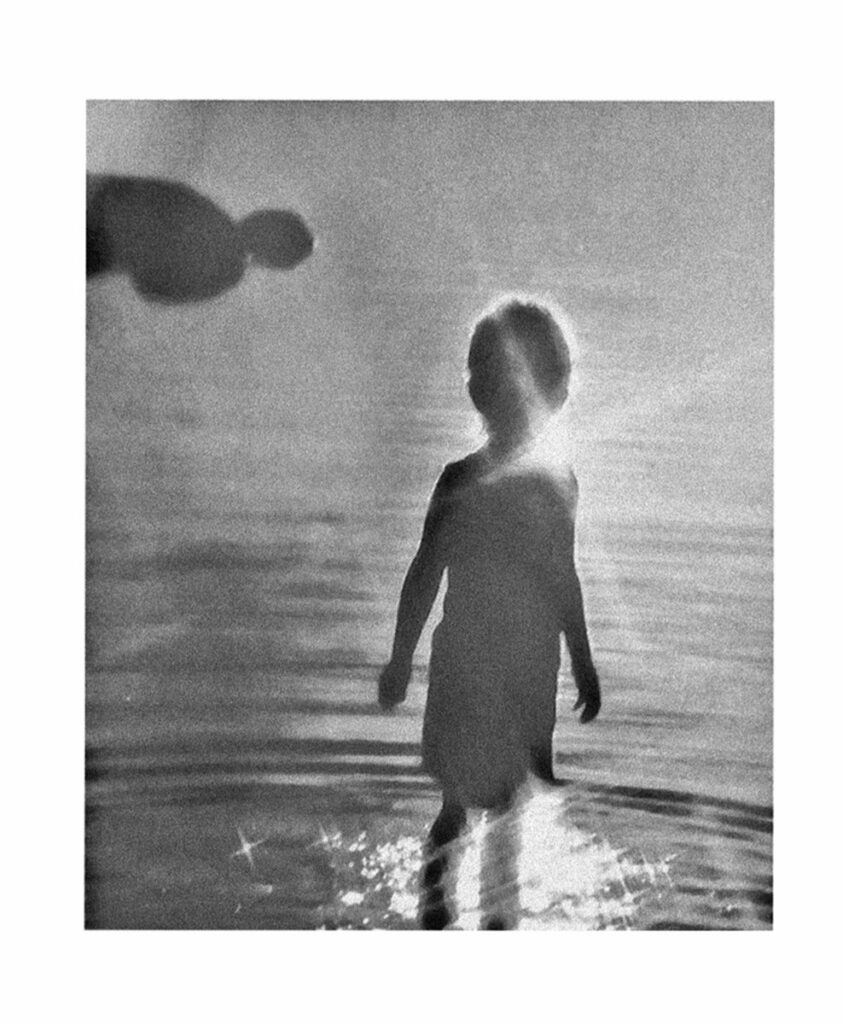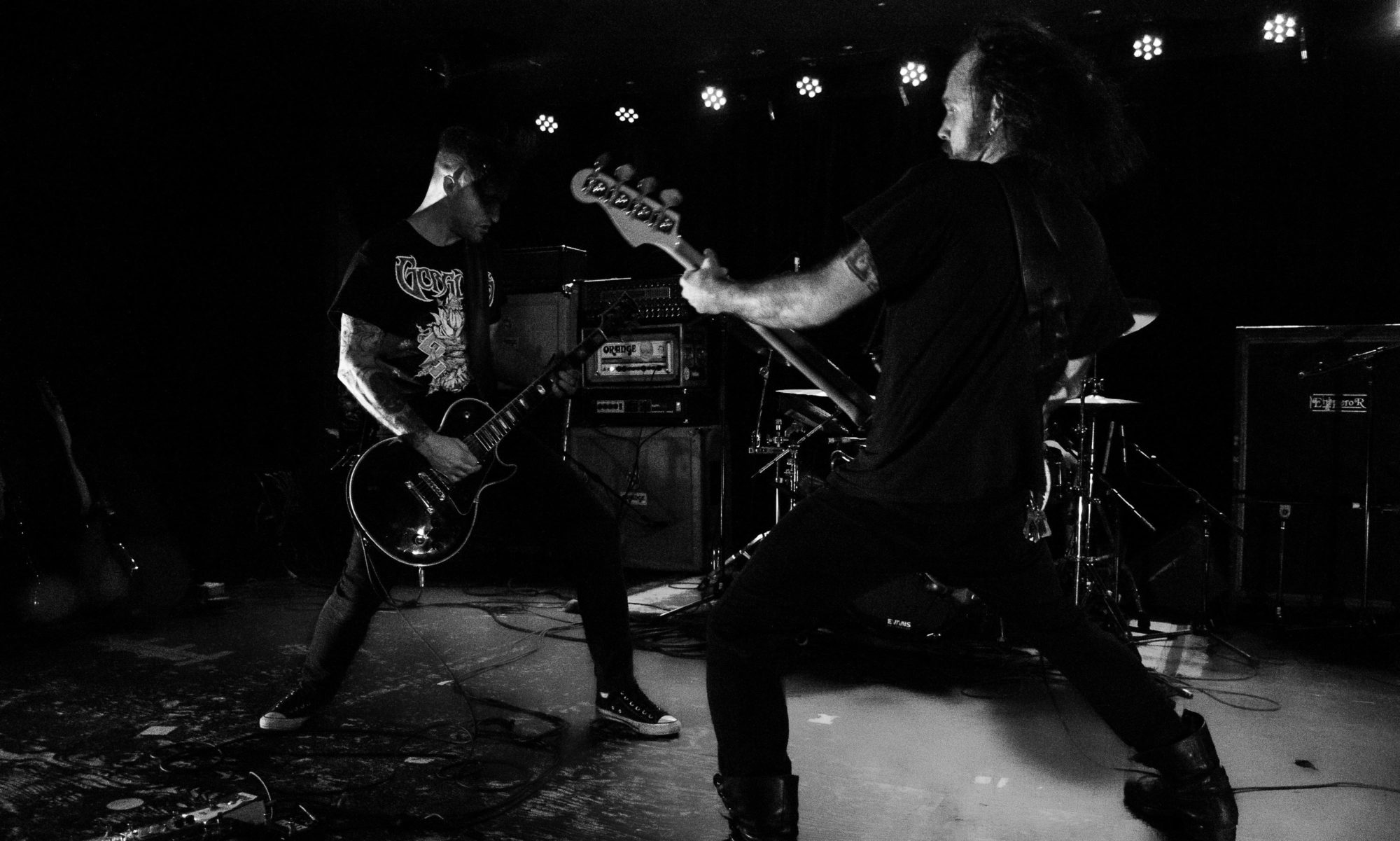
by maggie astrid clark
Aside from my partner and a handful of friends with impeccable taste, one of my go-to sources for locating new music is Cam Scott’s UMFM program “Radio State.” In March, this was how I first encountered the ambient drone stylings of Hazel Fog. After some digging—which is what I like to call “doing a cursory Google search”—I found that they’d released a self-titled two-song EP on Bandcamp on February 6, 2024, uploaded to the page of local label Makade Star. I’m always on the lookout for things obscure, mysterious, dissonant, and unsettling, so I was hooked immediately.
(I pause here to recognize that UMFM, of course, is a competitor station to the one that publishes this magazine, so I must apologize for my impudence and disloyalty. Rest assured that I turn the dial right back to CKUW for the remainder of my campus radio needs.)
The qualities that make experimental sound collage so compelling to listen to are exactly what makes the genre difficult to review. You can’t do a lyrical analysis, for there are no lyrics to analyze. You can try to describe the sounds themselves—but even then, it’s often tricky to pin down what those sounds are or how to convey that information in an evocative way. You’re now left having to discuss the general “vibe” of the record, but this is highly subjective and not necessarily transferable from person to person. This is where the artist’s self-description can come in handy: per an Instagram post advertising their March 9, 2024, show at the Handsome Daughter, Hazel Fog’s compositions contain “[a]nalog warbling drone, chimes and wild nightlife eventually escaping the fuzz. Distant yet tranquil psych-drenched guitar passages. A soundtrack for all seasons change.”
That last line is interesting. Nothing in the sonic experience of Hazel Fog made me contemplate the changing of the seasons—not on my first, second, or third listens. But upon revisiting it after reading the above passage, I realized that the signs were there: the warped chimes and reverbed cricket chirps permeating the opening track “Land Line” could indeed have been meant to conjure the image of an early fall or late summer evening. In my mind’s eye, I can see the waning daylight and rolling black clouds; in my mind’s flesh (?), I feel ominous, forceful gusts of wind sweeping across the plains. Perhaps I am standing on a porch, darkly intoning “storm’s a-comin’” to an audience of no one, or perhaps I am being swarmed by locusts in a wheat field as in the climactic sequence of Days of Heaven. Regardless, I am left with an inescapable feeling of impermanence. Nothing—good, neutral, or bad—will last. We are all future corpses and future dust.
It’s possible to have a different reading, of course, and I would know. The first few times I listened, after all, my thought process was closer to “wow, what a neat aggregation of sounds! I am intrigued by this art without a knowable theme!” because I hadn’t yet seen the above Instagram blurb. If, on the other hand, you picked up the “all seasons change” thread faster than I did, our interpretations of the same tunes and imagery will still diverge: you wouldn’t frame autumn winds as “ominous” if you’re someone who enjoys the winter, for instance, and you wouldn’t be so prompt to turn every composition into a meditation on the inevitability of death if you have a more cheerful affect. What do the lilting guitar riffs of “Chime I – The Ground in the Air – Matrix – Chime II” mean? I don’t know. What does a riverbed or a horse or a grilled cheese sandwich “mean”? What is any of this for? Your guess is as good as mine.
But perhaps you’re not satisfied with this capitulation to the instability of symbols. “You’re the music critic, maggie; you tell me what to think about this!” But, dear reader, the imagined version of you that I’ve invented for my deranged rhetorical purposes has just committed a critical error: I’ve already told you what to think. The very act of describing this EP to you has already prejudiced any forthcoming experience of it. My words, filtered through your brain, have now produced an expectation to which Hazel Fog and, in turn, my review thereof will live up to, fall short of, or exceed. Your reality will differ from mine; though there may be mutual influence at play, the two are ultimately irreconcilable. When it comes to sound art, I—to quote Roland Barthes—“live in the interstice, delivered from any fulfilled meaning.” I was born in the interstice, and I will reside here forever.

